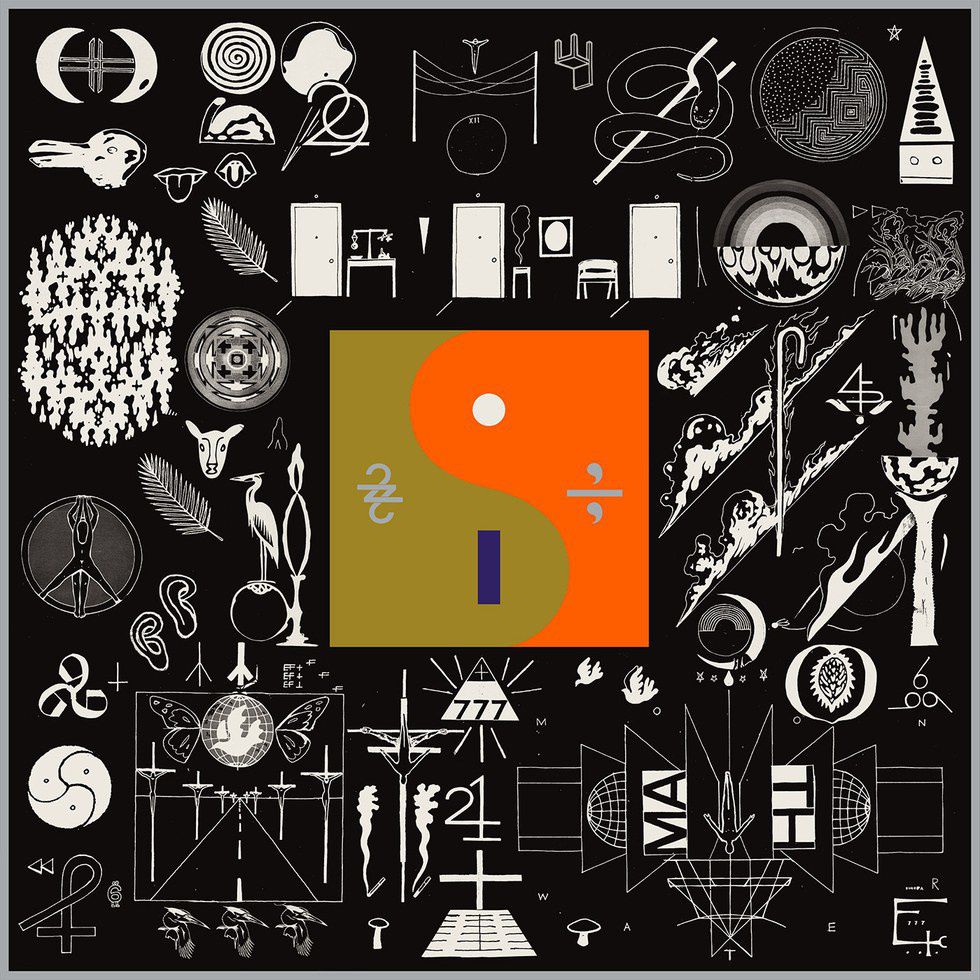The end of September saw the release of a hotly anticipated, incredibly divisive new album from now-legendary experimental artist, Bon Iver. The record, 22, A Million, has been reacted to very strongly by people across the entire spectrum of the music world. I will seek to analyze the album as well as the reactions to it.
Bon Iver is the artistic creation of Justin Vernon, a Wisconsin musician who started recording under the moniker after the dissolving of his former bands left him at an impasse. This backstory and the narrative it creates around his first record, 2007's For Emma, Forever Ago, have helped shape Vernon's place in music, and have led him to be both defined by and restricted by this narrative in many peoples' eyes. The perception of Vernon as a sad man in the woods was destroyed by 2011's self titled album, which brought a full band and new sounds to the Bon Iver universe, characterized by synthesizers, horns and soft-glow electric guitars. Vernon's haunting voice was still on display, but placed among lush studio sonics, rather than bitter cold ambiance and thin acoustics. The album was critically lauded, but the specter of what many still believed Bon Iver to be still lingered.
22, A Million is similar to last year's Currents by Tame Impala, in that it is a third album from what might have been thought of as a band that asserts it is not the work of a band, but an auteur. Just as Tame Impala's record was Kevin Parker's document attesting to his individual brilliance, Vernon lets it be known on this record that he is Bon Iver, and without him, Bon Iver does not exist.Where the records differ is that Currents aimed to land Kevin Parker in the same conversations as Max Martin and Mark Ronson- it was his love letter to pop music doubling as an application to be that kind of producer (it worked- he has since produced for Lady Gaga and Rihanna). In contrast, Justin Vernon is fleeing from accessibility on this new record, a decision that many see as a mark against the record. In his mostly negative review of the record, music critic Anthony Fantano's primary gripe with the record was its lack of cohesion, and his belief that good ideas were squandered by song structures either intentionally oblique or lazy. His assertion that the album is just as pseudo-intellectual as its Eric Carlson-penned cover art was a proclamation that angered many of Bon Iver's fans.
The music of 22, A Million is simply thrilling, and unlike anything you will hear anytime soon, until the wave of imitators springs up to rip this album's shtick.
Vocoded vocals, spacey synths, acapella loops, acoustic guitars, banjos and rolling drum machines are just some of the elements to be found in this record. A special note must be given to the Greek chorus of this record- the saxophone. This and the occasional horns serve as a constant companion to Vernon's centerpiece vocal, arguing with him on "___45____", a beautiful solo on "22 (OVER S∞∞N)", or a storm sent to disrupt "21 M♢♢N WATER".
Anyone decrying this record for its departure from Vernon's supposed signature sound show a lack of understanding of his previous music, as well as this record. They forget the vocoder that has been an element ever since his first record. They forget 2009's EP Blood Bank, who's final track "Woods", then seen as an outlier among his catalog, can now be seen as something of a blueprint of the last seven years of his music. The track is referenced heavily by the new album's early song "715 - CRΣΣKS", which is only one instance of self-reference on the record. On "21 M♢♢N WATER", there is a sample of For Emma's "Flume", a track Vernon credits as the catalyst of Bon Iver. However, instead of a direct musical sample, Vernon samples that song's buzzing acoustic guitar ambiance as a way to shape the background of a track mostly based on atmosphere.
With 22, A Million, Justin Vernon has made a case for the importance of Bon Iver and relevance of experimental music in popular culture. While this is certainly not the most abstract record that will be released this year, it is important as a way to expose mainstream audiences to a fresh, outre sound. It will most likely take Vernon a very long time to craft his next record, but over the course of 34 minutes he leaves us with more than anyone could have asked for.





















